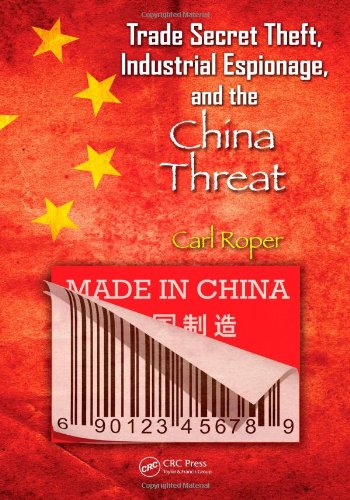

Most ebook files are in PDF format, so you can easily read them using various software such as Foxit Reader or directly on the Google Chrome browser.
Some ebook files are released by publishers in other formats such as .awz, .mobi, .epub, .fb2, etc. You may need to install specific software to read these formats on mobile/PC, such as Calibre.
Please read the tutorial at this link: https://ebookbell.com/faq
We offer FREE conversion to the popular formats you request; however, this may take some time. Therefore, right after payment, please email us, and we will try to provide the service as quickly as possible.
For some exceptional file formats or broken links (if any), please refrain from opening any disputes. Instead, email us first, and we will try to assist within a maximum of 6 hours.
EbookBell Team

4.0
46 reviewsAlthough every country seeks out information on other nations, China is the leading threat when it comes to the theft of intellectual assets, including inventions, patents, and R&D secrets. Trade Secret Theft, Industrial Espionage, and the China Threat provides an overview of economic espionage as practiced by a range of nations from around the world—focusing on the mass scale in which information is being taken for China's growth and development.
Supplying a current look at espionage, the book details the specific types of information China has targeted for its collection efforts in the past. It explains what China does to prepare for its massive collection efforts and describes what has been learned about China's efforts during various Congressional hearings, with expert advice and details from both the FBI and other government agencies.
This book is the product of hundreds of hours of research, with material, both primary and secondary, reviewed, studied, and gleaned from numerous sources, including White House documentation and various government agencies. Within the text, you will learn the rationale and techniques used to obtain information in the past. You will see a bit of history over centuries where espionage has played a role in the economy of various countries and view some cases that have come to light when individuals were caught.
The book supplies an understanding of how the economy of a nation can prosper or suffer, depending on whether that nation is protecting its intellectual property, or whether it is stealing such property for its own use. The text concludes by outlining specific measures that corporations and their employees can practice to protect their information and assets, both at home and abroad.